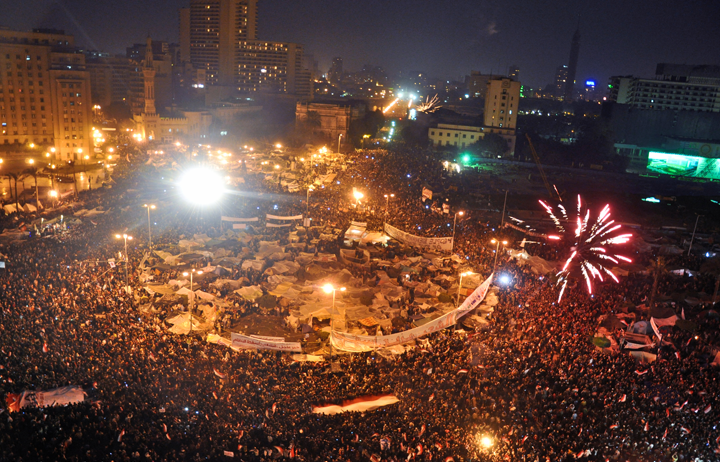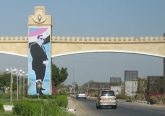Last week, three men were executed. Three men whose fate I had grown to care about from the shelter of a media centre in North London. Almost a year ago to the day, I began researching and producing a documentary that investigated the imprisonment of three men in a Bahraini jail: 21 year old Ali al-Singace, Abbas al-Samea, 27, and Sami Mushaima, 42. They were at the heart of a story that cried for diplomatic intervention, with overwhelming evidence that suggested they had been arrested, in reality, not for the killing of three policemen in a bomb blast in 2014, but for the crime of opposing their government. It was hard not to grimace at the pictures of the wounds allegedly inflicted by the men’s custodians under torture. It was with strained composure that their lawyer recalled how one of the suspects had been taken to court in a wheelchair because of the severity of his injuries. But the gravity of being denied anything close to a fair trial reached new depths on Friday, when the men were placed before a firing squad.
State executions occur almost daily globally, but this case is about more than the injustice suffered by these individuals. It is not just another example of an all-too-familiar tale of distant persecution, from which the British can shield their weary conscience. Because these executions, with the dubious guilt of those involved, are a symbol of the subtle but frightening reassertion of authoritarian control in the Middle East. Far from the revolutionary force the Arab Spring was initially heralded as, Bahrain has used the aftermath of social unrest to rigorously cement the Sunni minority’s governmental power. Although it has maintained relative stability in the intervening years, the regime has used this opportunity to cement the status quo and silence its opponents. Friday’s event illustrates that Bahrain has categorically stopped paying lip-service to the international agreements on human rights that it promised to ingrain in its domestic legal code and constitution in 2012, amidst widespread public discontent. And other states have, and will follow.
Indeed, Bahrain is not alone in its severe reaction to the unprecedented uprisings during the Arab Spring five years ago. Since helping to crush the protests in the tiny Gulf State, Qatar and the UAE have joined Bahrain in extending domestic anti-terrorist laws to allow lengthy incarcerations without trial for those suspected of harbouring opposition to their governments. Egypt has followed suit in the last week. The Egyptian media are also under heightened censorship, whilst external reports of dissenters simply disappearing are on the rise. Tunisia, reeling from internal strife, fails to stand-up as the local model of democratic reform that it briefly embodied in 2011. And as a political solution is sought to the Syrian crisis, it is unclear whether any so-called power sharing regime will oppose a similarly oppressive trajectory in the aftermath of the war.
Warnings of an encroaching authoritarianism in the region have, until now, quite understandably been overshadowed by the bloodshed and systematic breakdown elsewhere. But the nature of last week’s executions is a stark wake-up call that we must pay closer attention to the more subtle judicial and political crack-downs taking place. We are seeing the tangible hallmarks of a revenge tide in the nations that saw the streets alive with demands and protest only five years ago. The near silence regarding this phenomenon by international leaders must also be simultaneously challenged, whilst demonstrating how their own national and security agendas in fact blatantly overlap with these very matters.
Of course, it is difficult not to ask oneself – What can Britain do? Are its hands not tied? Can Britain realistically cast a diplomatic cannonball into an already rocky political framework, with relations that are complicated by an uncertain power complex? Quite frankly – if it seeks to maintain its position as a liberal model, to provide stability, and sustain its political common-ground with the Middle Eastern oligarchs – yes. Never has the arrival of the Boris Johnson enigma been so welcome, as a voice of contention, seeking to question his Arab counterparts to the point of Bahrain’s King Hamad Al Khalifa’s discomfort. A great deal more is at stake than fearing for the long-term tenure of our navy bases.
In essence, Bahrain starkly demonstrates that the quieter, dark remnants of the Arab Spring are spiralling. The nation shook under the global spotlight then, and they need to do so again – this time scrutinising the government, and the brutality of their continued response. In the coming weeks and years, we must not turn a blind eye to the sliding mechanisms of authoritarianism, or allow ourselves to overlook abuses of basic human rights. The nature of Fridays executions will not be an anomaly, and without a more dynamic and dogmatic response from Britain’s diplomatic wing, Spring is unlikely to re-dawn.
Documentary: "Guilty Till Proven Innocent"
A Documentary on the Death Penalty and Human Rights legislation in Bahrain
Producer: Isabel Woodford






